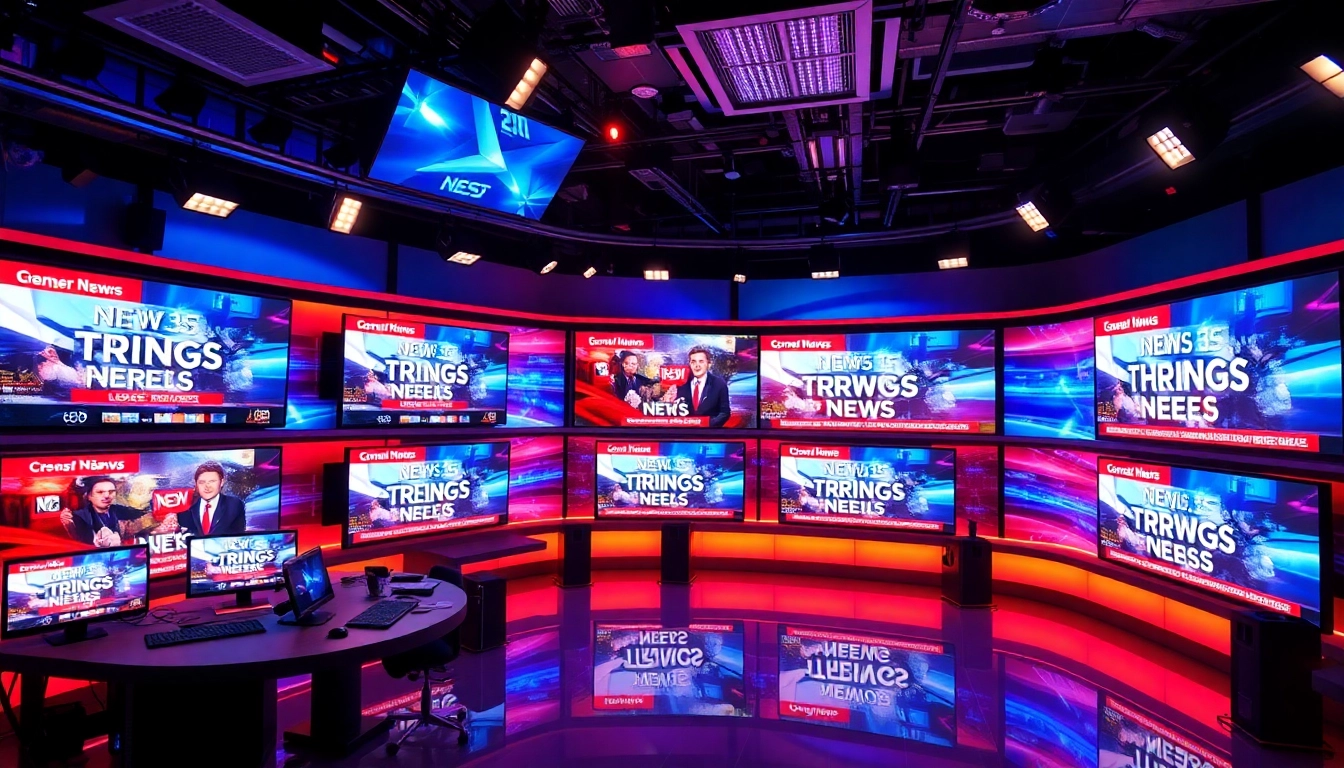Understanding the Current Landscape of Social Network Trends
In the rapidly evolving world of social media, staying ahead of emerging trends is crucial for brands, content creators, and marketers alike. The social media environment in 2024 is characterized by dynamic shifts driven by user behavior, technological advancements, and platform updates. To navigate this landscape effectively, it’s essential to comprehend the key trends shaping social media platforms today. For those looking to deepen their understanding, exploring Social Network Trend Updates can provide valuable insights into the latest developments and industry shifts.
Identifying Key Trends Shaping Social Media Platforms
Emergence of Short-Form Video Content
Short-form videos continue to dominate social media with platforms like TikTok, Instagram Reels, and YouTube Shorts capturing massive user engagement. These formats appeal to shorter attention spans and facilitate creative expression, making them ideal for brands aiming to increase visibility and interaction. Data shows a significant rise in video content consumption, with over 80% of social media users engaging with short videos monthly.
Integration of Augmented Reality (AR) and Virtual Reality (VR)
AR and VR technologies are transforming social interactions by offering immersive experiences. Brands leverage AR filters on Instagram and Snapchat, enhancing user engagement through interactive elements. VR spaces are also gaining traction, enabling virtual events and social gatherings, thereby extending social networks into new dimensions.
Rise of Decentralized Social Platforms
Decentralized social networks such as Mastodon and Blockchains-based platforms challenge traditional models by prioritizing user control over data and content moderation. This trend reflects growing privacy concerns and demand for transparency, influencing platform features and community standards.
Analyzing User Behavior and Engagement Patterns
Shift Toward Authentic and Relatable Content
Modern users crave authentic interactions over curated perfection. Behind-the-scenes, raw, and user-generated content often garners higher engagement than polished campaigns. Recognizing this shift allows brands to foster trust and build deeper connections.
Increased Preference for Niche and Community-Based Platforms
Users are gravitating toward niche communities that align with their interests, such as Discord groups, Clubhouse, or Reddit communities. These platforms facilitate more meaningful interactions and enable brands to target highly specific audiences effectively.
Influence of Mobile-First and Voice-Activated Interactions
With mobile devices serving as primary access points, optimizing content for mobile viewing is essential. Additionally, voice search and voice-activated assistants are shaping engagement patterns, requiring content creators to consider voice-friendly keywords and commands.
Impact of New Features and Algorithm Changes
Platform Algorithm Adaptations
Platforms are continually updating their algorithms to prioritize fresh, engaging, and video content. For instance, Instagram’s shift to prioritize Reels or TikTok’s focus on immersive content demands marketers to adapt their content strategies accordingly.
Introduction of Monetization and Creator Support Features
Features like TikTok’s Creator Fund or Instagram’s Badges enable content creators to monetize their audience directly. These tools incentivize quality content production and influence engagement dynamics.
Real-Time Engagement Tools
Live streaming, polls, and real-time commenting features promote instant interaction, fostering community and enhancing user retention. Leveraging these tools effectively requires understanding peak activity times and audience preferences.
Strategies for Leveraging Social Network Trend Updates Effectively
Integrating Trending Content into Your Campaigns
Monitoring trends allows brands to remain relevant by incorporating popular themes, challenges, or formats. For example, leveraging trending hashtags or participating in viral challenges can significantly boost visibility. A practical approach includes performing trend audits regularly and adapting successful tactics into your content calendar.
Utilizing Data-Driven Insights for Audience Targeting
Advanced analytics enable precise audience segmentation based on behavior, preferences, and engagement history. Using tools like social listening platforms, marketers can identify trending topics within specific demographics and tailor campaigns accordingly to maximize resonance and ROI.
Adapting Content Formats to Emerging Trends
Flexibility in content creation is key. Transitioning from static images to dynamic videos, interactive polls, or AR filters ensures alignment with current trends, increasing the likelihood of engagement. Conducting ongoing content audits helps identify what formats are performing best and where to innovate further.
Tools and Resources for Monitoring Social Network Trends
Top Analytics Platforms for Trend Tracking
Platforms such as Brandwatch, Sprout Social, and Hootsuite Insights offer real-time data on trending topics, sentiment analysis, and engagement metrics. These tools facilitate proactive trend identification, allowing brands to respond swiftly and effectively.
Using AI and Automation to Stay Current
AI-powered tools like BuzzSumo and Lately.ai help analyze vast datasets to uncover emerging trends. Automation workflows can schedule trend-based content, monitor competitor movements, and send alerts on significant shifts, freeing creative teams to focus on strategic initiatives.
Creating a Trend Monitoring Workflow
Establishing a systematic approach involves setting up automated alerts for keyword changes, regular social listening sessions, and collaborative dashboards. Consistency in monitoring ensures timely responses to trends, maintaining competitive advantage.
Case Studies: Successful Adaptation to Social Network Trends
Brands That Thrived by Embracing New Features
One notable example is Nike’s integration of AR filters and short-form videos to promote their campaigns. By leveraging TikTok challenges and interactive content, Nike significantly increased brand engagement and sales conversions.
Lessons from Social Media Campaign Failures
On the flip side, some brands have faced setbacks by ignoring platform-specific trends or failing to adapt quickly. A common mistake involves repurposing content without customizing for current features, leading to lower visibility and engagement.
Innovative Approaches to Trend Integration
Innovators are experimenting with gamified experiences, augmented reality shopping, and virtual influencer collaborations. These approaches push the boundaries of traditional social media marketing and create memorable, shareable moments.
Measuring the Impact of Trend-Based Strategies
Key Performance Indicators for Trend Engagement
To assess success, consider metrics such as engagement rate (likes, shares, comments), hashtag usage, video views, and click-through rates. Analyzing these data points reveals how well content aligns with current trends.
Calculating ROI from Trend-Driven Campaigns
ROI measurement involves tracking conversions from trend-focused content, estimating the cost per engagement, and evaluating overall brand lift. Combining quantitative data with qualitative feedback ensures comprehensive evaluation.
Continuous Optimization for Future Trends
Ongoing analysis and adaptation are vital. Use performance insights to refine content strategies, experiment with new formats, and anticipate future trends based on data patterns and emerging technologies.







